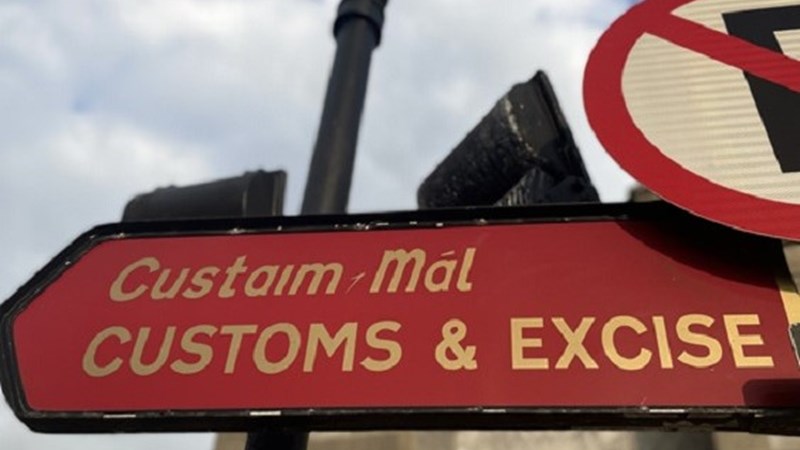The strengthened obligation to furnish facts
December 2022
In the field of road transport, the Netherlands has long been known as a convenient jurisdiction for carriers.
In its landmark decisions of 5 January 2001, the Dutch Supreme Court and following judgments defined a very strict criterion for breaking the CMR limit of Article 23, par 3, CMR (8,33 SDR per kilogram). The claimants must either prove that the damage was caused by the carrier’s willful misconduct or that he acted recklessly and with the knowledge that the loss would probably result from its acts or omissions (’consciousness recklessness’).
This criterion of conscious recklessness basically boils down to the fact that a breach of the limit is only an issue in cases of intent or a presumption of intent. Even the greatest negligence or disregard of safety instructions by the carrier does not prevent reliance on the limitation of liability. Thus, by Dutch standards, a carrier may be able to invoke the limitation of its liability in the event of theft of a truck combination left by the carrier with unlocked doors and the keys even still in the ignition.[1] For cargo interests, breaking the limit can be a near impossible task.
What makes the evidentiary position more difficult for cargo interests is that many of the relevant facts occurred when the consignment is under the control of the carrier. Much of the transportation escapes the view of cargo interests and they have no access to these facts. Therefore, they have a serious information gap. In case of a loss of a consignment, the carrier may incline from leaving this as it is while keeping the available information under wraps, especially when incriminating facts are involved. In order to discourage this, the courts assume that the carrier has a ’strengthened obligation to furnish facts’ of the information available. The carrier should in such cases provide the cargo interest parties with this information to enable the cargo interests to deliver the evidence. In this way, an attempt is made to restore the procedural balance between the parties.
Nowadays, more often cargo interests actively push for the application of the strengthened obligation to furnish facts in proceedings. In most matters this is not about obtaining information, but about ensuring that a sanction by the court is applied if the carrier is unable to disclose the information as to what happened to the cargo.
As these sanctions usually are that the court will hold that the carrier is not allowed to limit its liability, it may be more attractive for cargo interests to bet on this mechanism than to actually prove that there was intentional or deliberate recklessness.
The question is whether applying the strengthened obligation to furnish facts in this way does not overshoot the mark and the existing system of carriers' liability - as firmly anchored in Supreme Court case law for years - is set aside by this application.
In the context of transportation, a strengthened obligation to furnish facts is assumed fairly quickly according to the case law. A large number of cases even explicitly state that the mere loss of the goods during transport is sufficient to assume a strengthened obligation to furnish facts. Additional circumstances, although they may well have played a role in the background, are not mentioned in this context.
In the analyzed judgments, just like in the general framework outlined above, little attention is paid to the (extent of the) burden of proof on the party with the burden of proof. The justification for the use of the strengthened obligation to furnish facts lies in the plausibility of the arguments put forward. Although, as mentioned above, not too high demands should be made on the obligation to furnish facts, it is insufficient for a cargo interest party to merely state that goods disappeared during transport. After all, this in itself is not an indication of intentional or consciousness recklessness on the part of the carrier. More is needed, for example by pointing out the shadowy circumstances surrounding the transport or questionable behavior of the driver. After all, it happens that shipments go missing without any malicious intent during transport despite all precautions. Packages can hitch a ride with other shipments, be delivered incorrectly and not be noticed by the consignees until years later. In addition, shipments may no longer be linked to the consignee because shipment labels have become detached. When labels are not properly attached, they can become detached from the shipment through normal transportation manipulations.
Ultimately, the point for the carrier is not to hold its cards up to the chest. He should provide clues for possible evidentiary facts so that the cargo interests and the court can assess whether Article 29 CMR would apply. What this information is, should ultimately be considered on a case-by-case basis.
Applying the strengthened obligation to furnish facts in road transport cases is in itself understandable as it restores the procedural balance. However, in cases where carriers simply do not know how goods went missing, this system should not be applied. It cannot be the case that carriers are unlimitedly liable because of an apparent failure to comply with a strengthened obligation to furnish facts, while there is no indication whatsoever of intent or consciousness recklessness, such recklessness to be proven by cargo interests. In this way, through the law of evidence, a result would be achieved that is at odds with the mandatory provisions of the CMR and the interpretation given to them by the Supreme Court.
* * *
[1] Rb. Limburg 19 maart 2014, ECLI:NL:RBLIM:2014:5220, r.o. 4.5, S&S 2015/78 (DSV/ Road/Generali Hellas)









